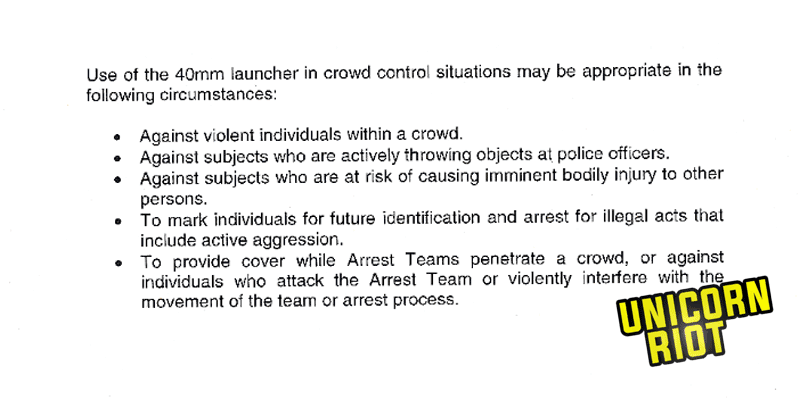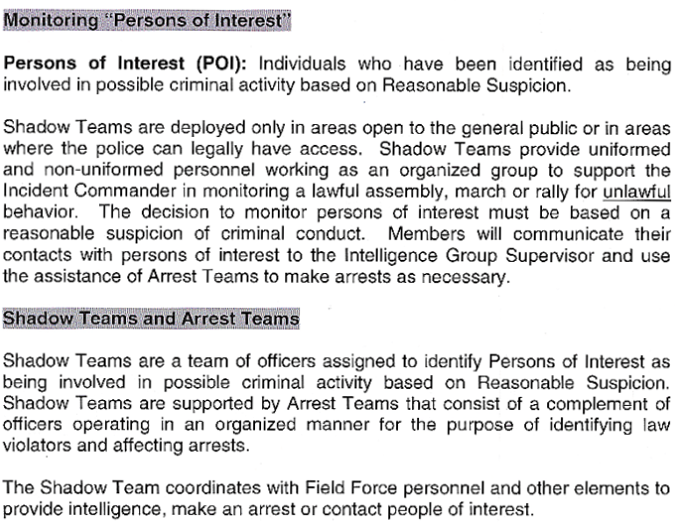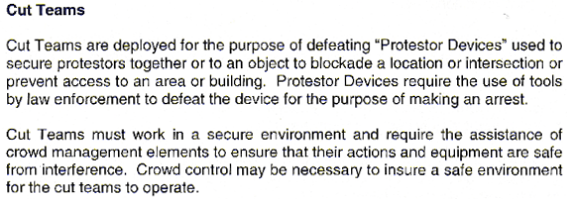LEAK: Unredacted Denver Police Crowd Control Manual
Last week, after filing a Colorado Open Records Act (CORA) request, Unicorn Riot received a heavily redacted copy of the Denver Police Crowd Control Manual. Most sections of the manual relevant to the policing of protests (our primary interest) were redacted. One redaction was 15 pages long!
Since then, an anonymous source provided Unicorn Riot with an unredacted copy of the manual. This version is dated May 2008, while the redacted version via CORA request is dated October 2011.
After examination of both documents, we are confident that most or all of the redacted portions from the current manual are present in the 2008 copy. We compared size, shape, and location of the redacted text body with the corresponding areas of the unredacted text.
Based on our experience and observations in Denver it is clear that the practices outlined in the 2008 manual are still in use by the department today (to the extent that the police follow the law and/or their own rules, which is loosely and sometimes not at all). Of course there may be discrepancies between the two documents that we would not be able to detect.
Two of the redacted sections that stood out as particularly arbitrary:
- The term “Field Force” in the Table of Contents
- The length in inches of the standard riot baton used in crowd control (42″)
Aside from the humorous nature of some items chosen to be redacted, there are sections of greater concern and interest.
The redacted manual we received from the city was issued in October 2011, most likely to reflect changes in crowd management based on the department’s first operations against Occupy Denver. 2008 is also the year Denver hosted the Democratic National Convention (DNC). Several mass protests took place during the convention, and a highly militarized police apparatus was deployed against demonstrators. The City of Denver paid $200,000 to settle a lawsuit brought by the ACLU over indiscriminate mass arrests of protesters conducted by Denver police during the 2008 DNC.
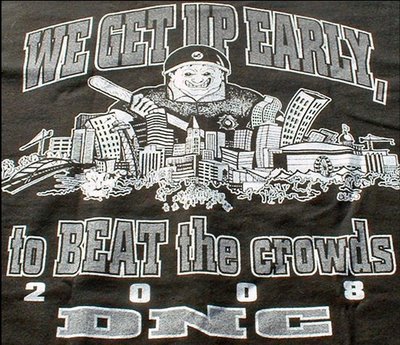
SHADOW TEAMS
In the “Rules of Conduct” section, the manual briefly outlines the role of “Shadow Teams” as groups of undercover and/or plainclothes officers who infiltrate demonstrations to observe participants, gather intelligence, monitor “persons of interest”, and help target specific protesters for arrest.
For more in-depth info, follow this link: Denver Police use undercover “Shadow Teams” to infiltrate and monitor protests
CUT TEAMS
DPD also deploys “Cut Teams” to dismantle lock-boxes or other devices that may be used by protesters during a civil disobedience or blockade action.
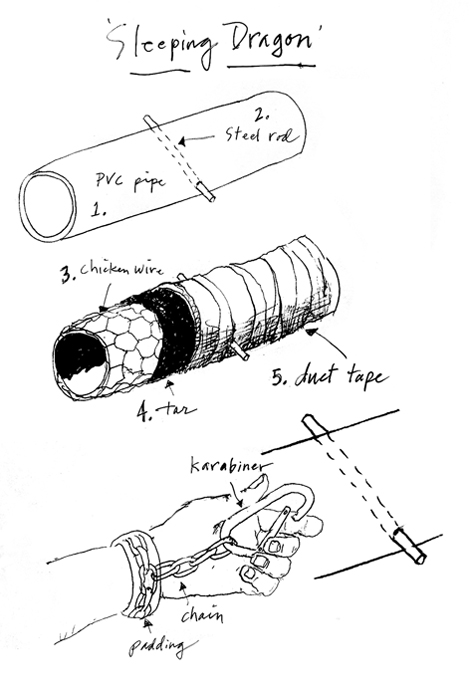
PAIN COMPLIANCE TECHNIQUES
For more in-depth info, follow this link: Denver Police manual permits use of “pain compliance” on passive individuals
The Crowd Control Manual also allows the use of “Pain Compliance Techniques” on individuals engaged in “passive resistance.” Although such an individual, someone who goes limp when arrested for example, poses no threat to the officer, the officer is permitted to use force to cause pain. Pain compliance techniques used by the Denver Police Department are known to involve the use of pressure points. It is common for people arrested at protests in Denver to report that while being arrested, officers pulled and twisted their wrists and fingers in very painful ways both as they are being handcuffed, and after they have already been handcuffed.
Full Manual text below:
DPDcrowdmanagementClick here to download the full manual in pdf
You can also download the pdf file here.
Tor users can download a copy here.
Releasing the Denver Police Crowd Control Manual is part of our ongoing investigation into the policing of social movements. Using open records requests and other methods, we are currently compiling reports documenting the Denver Police Department.
If you would like to help support our efforts in obtaining more FOIAs, CORAs, and more, please consider donating:
